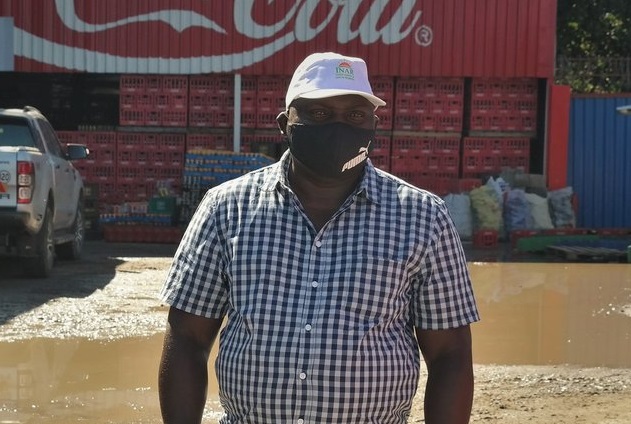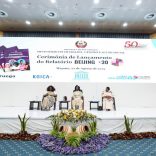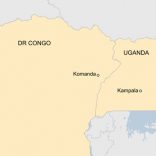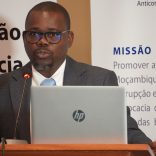Mozambique: UN calls for 'adequate funding' for women's initiatives
Mozambique: Rwandans terrified after businessman assassinated

Image: Twitter / @UNHCRMozambique
The Association of Rwandan Refugees in Mozambique is “terrified” due to the murder of a fellow countryman in one of the streets of Matola, on the outskirts of Maputo, the president of the association told Lusa on Tuesday.
“The whole community of Rwandan refugees is terrified,” said Cleophas Habiyareme, reiterating complaints about the persecution of opponents of Rwandan President Paul Kagame, which motivated Lusa to interview the victim in June.
Read: Rwanda: The mysterious deaths of political opponents – DW
Rwandan businessman Revocant Karemangingo, who had been living in Mozambique since 1996 – where he took refuge after the Rwandan genocide in 1994 – was shot dead near his home when he was returning home alone from one of his stores selling soft drinks and beers, according to the Mozambican Republic Police (PRM).
Revocat was reportedly intercepted around 17:30 (16:30 in Lisbon) by two vehicles, which blocked him before unknown persons fired several shots.
We condemn the killing of #KaremangingoRevocat, of the #Rwandan refugee community in #Mozambique. We call all Africans to stand in solidarity of the Rwandan refugee community in Mozambique! @SAHRDNetwork @AfricaDefenders @DefendDefenders @tsunga_arnold @hrdcmw @THRDCOALITION pic.twitter.com/r8bRdBD0Gl
— Prof. Adriano Nuvunga, Ph.D. (@adriano_nuvunga) September 14, 2021
“At the scene were found nine casings” of pistol bullets, Carminia Leite, spokeswoman for PRM in Maputo province, told Lusa, adding that the victim was taken to a clinic where he was declared dead.
According to the president of the Association of Rwandan Refugees in Mozambique, the businessman had been the target of political persecution since 2016, when he lived in Boane, south of Maputo: he escaped an alleged assassination attempt and after that followed a process of “psychological torture” against him and “all those who were considered opponents [of the regime] in Kigali”, the capital of Rwanda.
“There was an idea that he was financing groups opposing the government. In 2016 he escaped death, but now he has failed,” Cleophas Habiyareme lamented.
.@UNHCRMozambique expresses its deepest condolences on the tragic death of Revocant Karemangingo and calls for a swift, thorough investigation. UNHCR extends its condolences to Mr Karemangingo´s family, the Rwandan Association and all who may be affected by this tragedy. pic.twitter.com/zd9jwbXzVs
— UNHCR Mozambique (@UNHCRMozambique) September 14, 2021
This is the third incident involving Rwandan refugees in Mozambique this year, after the disappearance in May of journalist Ntamuhanga Cassien who was residing on the island of Inhaca, Maputo.
Less than a month ago, Habiyareme said, the association’s secretary and his brother were the targets of an attempted kidnapping.
In the June interview with Lusa, Revocat lamented Cassien’s disappearance, saying that “the Rwandan government does not want criticism.
At the time, he said he saw his mother die after the explosion of a bomb in the Congo during an attack by Rwandan forces on a refugee camp in 1994. Still, he believed that the history of persecution “will not repeat itself in Mozambique”.
This despite noticing a rapprochement between the governments of Mozambique and Rwanda – Rwandan troops having meanwhile entered the Lusophone country to help fight the armed insurgency in the northern province of Cabo Delgado.
Today, the whole scenario leads the community to question their safety in Mozambique.
“I am completely down because this is the third case” this year, stressed Cleophas Habiyareme, adding, “If there is no possibility of protecting us here in Mozambique, we will continue to flee.”
Despite the climate of “terror”, the association, which has some 4,000 Rwandan refugees, hopes that Mozambique will continue to respect the Geneva convention and the rights of refugees and clarify all cases.
The association president is confident: “The Mozambican state will not accept that this situation continues.”
PRM told Lusa that investigations are underway by the National Criminal Investigation Service.
The leader of Rwanda since 1994, Paul Kagame, is attributed to the country’s development after the Tutsi genocide of that year. Still, the head of state is also accused of limiting freedom of expression and repressing the opposition.
In late March, Human Rights Watch (HRW) accused the Rwandan authorities of limiting people using the internet to express themselves in the country after restricting freedom of expression in the media.
The restriction of freedoms has also been denounced and condemned by other organisations such as Reporters Without Borders and the European Union (EU).
The genocide in Rwanda was responsible for the deaths of more than 800,000 people, mainly from the Tutsi minority, between April and July 1994.
LYN/ADB // ADB.












Leave a Reply
Be the First to Comment!
You must be logged in to post a comment.
You must be logged in to post a comment.